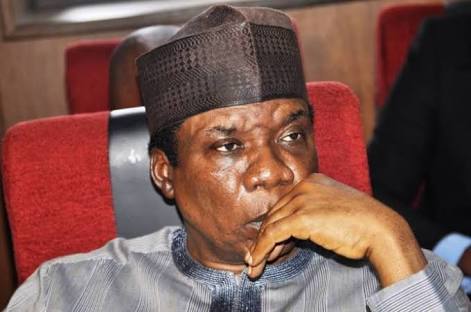Mr Jide Omokore, a business ally of former Petroleum minister, Diezani Alison-Madueke has his hope to quash a $1.6billion fraud charge against him dashed.
Justice Nnamdi Dimgba of the Federal High Court sitting in Maitama, Abuja on Thursday, struck out his application seeking to dismiss the charge preferred against him and others by the Economic and Financial Crimes Commission, EFCC.
The judge also refused the application seeking to strike out an additional proof of evidence dated June 7, 2017 tendered by the EFCC.
Other defendants in the suit are Victor Briggs, Abiye Membere, David Mbanefo, Atlantic Energy Brass Development Limited and Atlantic Energy Drilling Concepts Limited.
Omokore and his co-defendants are standing trial on nine-counts of criminal diversion of about $1.6bn alleged to be proceeds of the sale of petroleum products belonging to the Federal Government.
At the resumed sitting today, Membere’s counsel, Folabi Kuti, prayed for an order dismissing the charges and setting aside the proceedings.
He also asked the court to (in the alternative) strike out the additional proof of evidence containing a witness’ statement obtained on June 7, 2017 and filed on June 9, 2017 by the prosecution.
Kuti argued that the act of the prosecution constituted an abuse of court process and negated the principle of the Administration of Criminal Justice Act, ACJA 2015.
According to him, “what the prosecution filed, in the real sense of it was not an additional proof of evidence but a statement of a witness obtained only on June 7, 2017”.
He contended that the witness’ statement obtained after the prosecution had called two witnesses showed that investigation of the case was ongoing contrary to the provisions of the ACJA and Rule 3 of the Federal High Court’s Practice Direction on criminal matters.
Other defence counsel did not file any process either for or against the application and only said that they would leave the decision to the court.
Counsel to the EFCC, Rotimi Jacobs, SAN, said that the application was “based on a false premise”.
He noted that the purpose of front-loading the documents to be used by the prosecution was merely to bring the case of the prosecution to the attention of the defendant in line with Section 36(6) of the 1999 Constitution.
The learned silk argued that by virtue of Section 379(2) of ACJA, the prosecution was entitled to file an additional proof of evidence at any stage of the trial.
“Even if the practice direction had supported Membere’s contention, the practice direction, a directive by the Chief Judge of the Federal High Court, cannot override the provision of ACJA, which is an Act of Parliament.
“The applicant by asking the court to strike out the charges is asking for a tall order. He is ambitious”, Jacobs submitted.
In his ruling, Justice Dimgba held that an alleged violation of the Federal High Court’s practice direction on criminal matters as argued by Membere’s counsel, could not rob the court of its jurisdiction to hear a criminal case.
The judge held that the jurisdiction to hear a criminal case was vested on the court by the statues prescribing the offences on which the defendants are being tried and not the practice direction.
“By virtue of the provisions of the Advance Fee Fraud and Other Related Offences Act and the Money Laundering (Prohibition) Act, the court had been conferred with the jurisdiction to hear the case which involved the offences of advance fee fraud and money laundering preferred against the defendants”, Justice Dimgba held.
Justice Dimgba also held that Section 379(2) of the Administration of Criminal Justice Act 2015, cited by the applicant, allowed the prosecution to file additional proof evidence at any stage of the trial.
He added that the law did not limit the prosecution to specific types of additional evidence either documentary or oral that could be filed in court in the course of the trial.
The judge held that to interpret the laws “as construed” by the defendant would violate the said section 379(2) of ACJA and would create a “judicial clog” in the procedure of prosecution established by the law.
He added that the remedy available to the defendants was not to ask for the dismissal of the charges but to request more time to enable him to study the newly filed document.
“I’m of the view this application is not deserving to be granted and it is accordingly dismissed”, the judge ruled.
Justice Dimgba, after dismissing the application, adjourned till July 5, 2017 for continuation of trial. NAN














